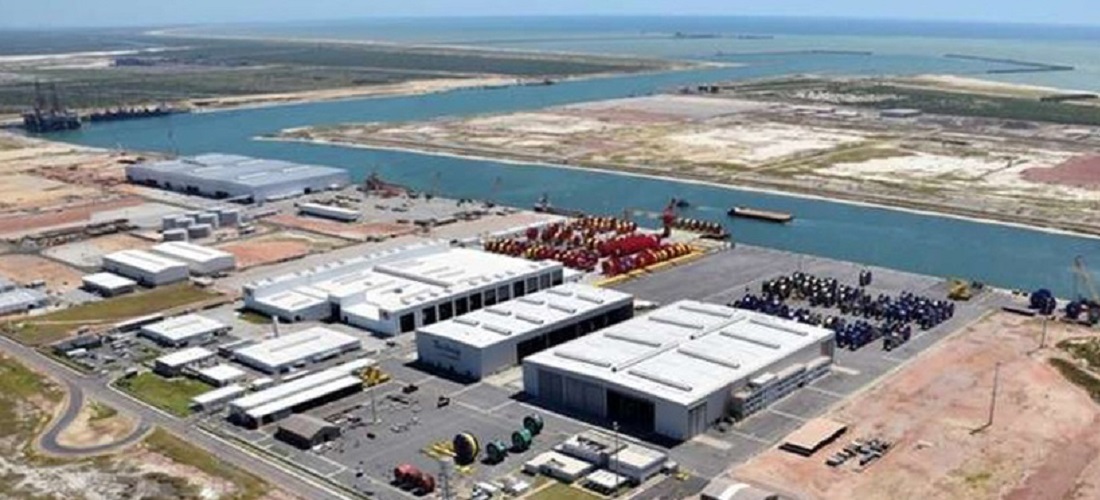
Land expropriations cause controversy around Port of Açu
Oct, 13, 2022 Posted by Gabriel MalheirosWeek 202241
Since the start of activities at the Port of Açu, the total number of jobs in São João da Barra, a city of 36,700 on the northern coast of Rio de Janeiro that became home to the port-industry-mega-complex, increased by almost 3,000. However, this process has had its fair share of downsides: thousands of people were evicted to make way for an industrial district still far from getting off the ground.
Prumo Logística, which owns the port, seeks to offset the environmental impacts by creating a private natural heritage reserve (RPPN), considered the largest in the country to house sandbank vegetation. In addition, the company has just opened a visitor center and is working on conserving sea turtles in partnership with Projeto Tamar. A definitive solution to the social impacts, however, still drags on.
Ever since the mega-port construction began, the state-owned development agency Codin took the lead in claiming land to make room for the maritime project. Many owners have not yet received compensation, and at least 300 cases are being reviewed by the courts, according to Rodrigo Pessanha, a lawyer who works in several of these cases. Some processes involve “hundreds of appropriations,” he says; he estimates the total number of people affected by the expropriations of around 2,500 properties, including approximately 2,000 urban lots, at 7,500.
According to Prumo Logística, the processes “occurred in due accordance to the law.” The port operator, which already had a relationship with the local community established at the beginning of the development of its port project in 2008, proposed to local landowners the acquisition of their properties upon payment of amounts set in the reports of the expropriation process.
Such an initiative resulted in 282 property owners – equivalent to 62% of the total area of the Industrial District – receiving the amount due for their property in advance, according to the company.
The legal dispute has been allowed to drag on by the silence of the courts in recent years, although protests have been escalating in the past decade with road closures and burning tires. Pessanha recalls cases of older adults removed from their homes under police pressure and houses destroyed. According to the lawyer, displaced owners were left without where to place their cattle and were forced to move the animals or rent properties.
The geographer Marcos Antônio Pedlowski, a professor at the state university Uenf, who studies the socio-environmental impacts of territorial and environmental planning policies, has analyzed the takeovers of the Port of Açu area for more than ten years. The resistance of small rural producers was, in a way, surprising.
Many of the families settled in the region for decades maintain some degree of kinship with each other. When construction began, most owners were already in advanced age, says Pedlowski. It was a resistance movement of the elderly, adds the professor, who classifies the expropriations as “state land grabbing.”
The resistance survives at Sítio do Birica, a 27,000-square-meter property that draws the attention of anyone passing the road to the port. It is a green island in the middle of a desert of vacant land, sandy soil, and undergrowth. On the fence in front of the property, posters with slogans against the Port of Açu catch the attention of passers-by. Inside the farm, the green of the trees and the production of organic products stands in large contrast with the void left by the neighbors.
Rogério Zampronha, the president of Prumo Logistica, the company that owns the port project, expressed his willingness to resolve the issues, which have persisted since before he assumed office in April of last year. “We are paying close attention to our interactions with local landowners so that we can protect their interests. We don’t want to wait twenty years for a court decision. We chose to have an open dialogue. This is happening. We have greatly accelerated this process, and I anticipate having a swift resolution,” the executive says.
Source: O Estado de S. Paulo
To read the full original article, please go to: https://www.estadao.com.br/economia/desapropriacoes-de-terras-ainda-se-arrastam-no-porto-do-acu/
-
Ports and Terminals
Aug, 12, 2022
0
Port terminals association questions auction rules in the Port of Santos
-
Oct, 11, 2023
0
Brazil ups toy and games imports significantly
-
Jul, 10, 2023
0
Wilson Sons announces plans to adopt 100% renewable energy sources at Rio Grande Container Terminal
-
Ports and Terminals
May, 19, 2023
0
Company employs same vessel for container, vehicle shipment at Montevideo


